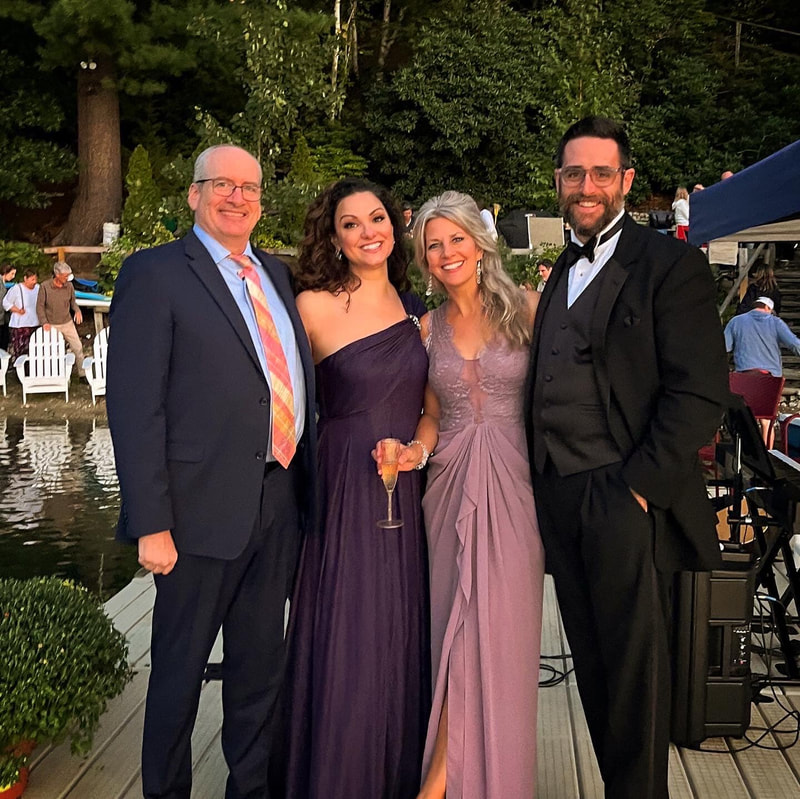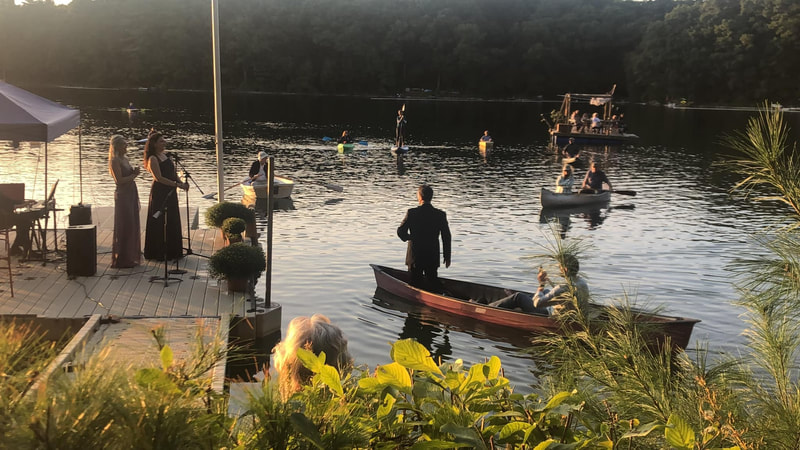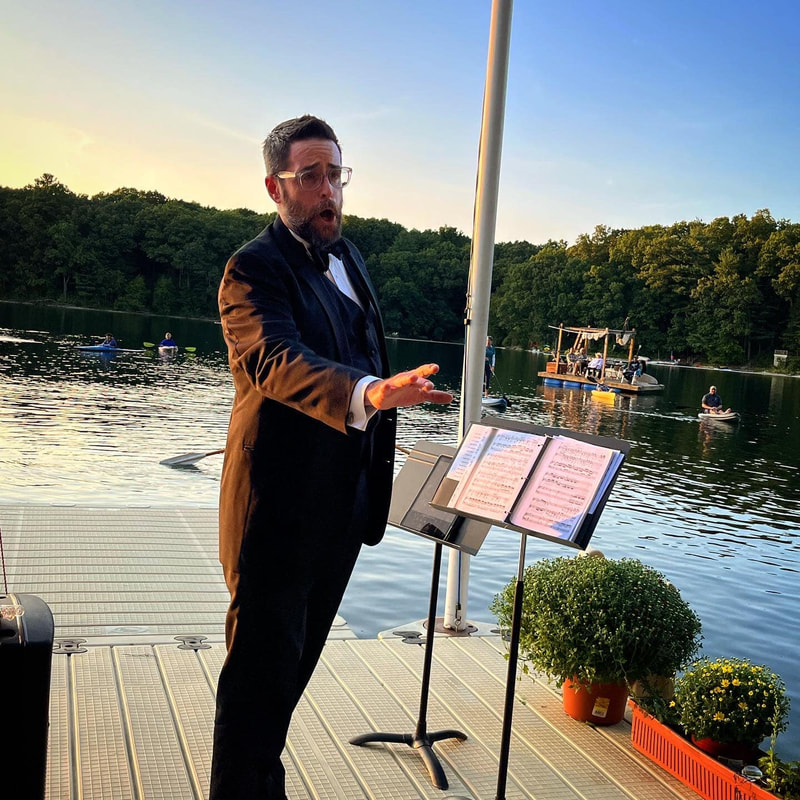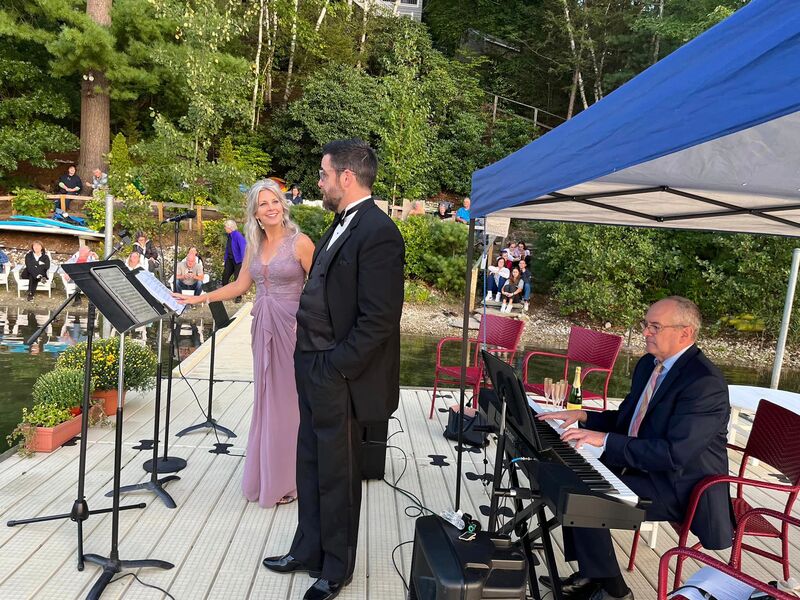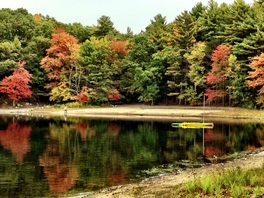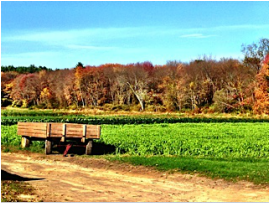White Pond and Walden are great crystals on the surface of the earth, Lakes of Light.
In wildness is the preservation of the world.
Henry David Thoreau
In wildness is the preservation of the world.
Henry David Thoreau
Preserve White Pond is a tribute to White Pond and the natural gifts it offers our community.
Let's protect its fragile shoreline and ecosystem.
Let's protect its fragile shoreline and ecosystem.
Human Earth Awakening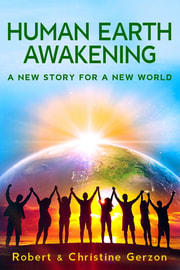
Our book, Human Earth Awakening is now available on Amazon as an illustrated ebook and paperback. It is a mythic adventure where past, present and future collide and we have one last chance to heal our planet.
This mythic story grew out of our love for this planet, our grief for the state of humanity and our anxiety about the future. It helped us understand the hidden dimensions of the apocalyptic times we live in and it inspired us with an uplifting vision of the future. We hope it will bring you inspiration, too. Please visit our website, watch our video introduction and take a look inside our book. READ the top reasons to preserve the Pond. View photos of the wildlife of the Pond. Imagine an ecologically balanced vision for White Pond. SEE White Pond on Channel Five's Chronicle program What's not to Lake? VIEW this beautiful panorama of White Pond by photographer John Wood of Concord. Thanks for visiting our website. We welcome your feedback.
You can contact us here or visit us on Facebook. 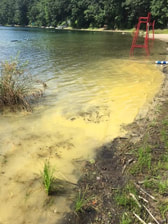
Blue Green Algae Update
There have been several algae blooms at the pond this past summer. The Town of Concord will continue its project this to target and remove harmful algae/cyanobacteria blooms (HABs), their toxins, and excess nutrients from White Pond. We've collected a helpful list of resources on pond management and toxic algae (HABs or Harmful Algal Blooms). Good News- White Pond Youth Conservation Group: an Overview by Jane Prentiss, Mentor The White Pond Youth Conservation Group is committed to bringing awareness through education and encouragement, by working together with the Town, the neighborhood and others to find solutions to the complex problems that affect White Pond and its surrounding environment which is a habitat to many animals There are 8 youths in the group ranging in age from 9 to 17. They meet among themselves and decide on which projects to work on. Then they meet with Jane Prentiss, long time White Pond resident and activist for the pond for decades, for weekly mentoring. WPYCG is actively observing the Cold Brook Crossing Development on Fitchburg Turnpike in Sudbury/Concord Town line that has leveled nine acres of land in Sudbury on the Concord Town line near White Pond. They saw the complete destruction to wildlife habitat, plants, trees, blasting of bedrock. These youth observed problems such as climatic changes, infrastructure and maintenance issues, lack of education and cooperation, cumulative human impact. Current Projects include: water testing, shoreline septic system data base, storm drain locations, Spring clean-up. weather data base, save the native blueberries project. White Pond Advisory Committee The WPAC submitted their recommendations to the Select Board in their report, White Pond as a Resource for All: A Vision for Water Quality, Usage and Sustainability. |
About White PondWhite Pond is a 43-acre kettle pond with a watershed of approximately 350 acres in the southwest corner of Concord. It is classified as a “great pond” by the Massachusetts Department of Environmental Protection.
This area of Concord was historically an agricultural area part of the Sudbury River Valley and continues to be a major wildlife corridor. Preserving and protecting what is left of the woods is a top priority of the town and the residents of Concord. Please be mindful of staying on the trails when you visit. The White Pond shoreline consists of private homes, a beautiful town-managed swimming beach open to Concord residents and non-residents, a quiet conservation area with walking trails, and a public access road for fishing and boating. There is no swimming allowed in Sachem's Cove. Please only swim at the town beach where there are life guards, restrooms and trash containers. See this link, White Pond Swimming Beach, for further details. In the summer months, the pond often contains algae blooms which can be toxic to people and animals. If you would like to know the status of the algae blooms in the pond, please visit this link: White Pond Watershed Here are some other useful resources: White Pond Advisory Committee Conservation Area Trail Guide Concord residents were treated to some "Dock Opera" performed by White Pond resident, Mara Bonde and other talented musicians. Musical Credits
Mara Bonde Soprano Sandra Piques Eddy, Mezzo-soprano Neal Ferreira, tenor Brian Moll, Piano This is a crucial time in the life of White Pond, its natural environment and the surrounding neighborhoods. Like other local ecosystems, White Pond is already experiencing warmer seasonal temperatures, resulting in eco-stress from higher water temperatures that affect the Pond's vegetation and wildlife. It also causes algal blooms. Global warming means more hot days during the year resulting in more people looking for a place to swim. According to the EPA, the Boston area is projected to experience an increase in the number of days reaching 100°F — rising dramatically from a past average of 1 day per year to 24 days per year by 2100. Article: What the Muck of Walden Pond Tells Us About Our Planet.
The author, Curt Sager states that: Modern science has given us a much deeper understanding of our place in the natural world than Thoreau had. We ignore its lessons at our peril, because we are not separate from nature or immune to its laws. We are nature, a truth that I see most clearly through the eye of a pond. IMPROVING WATER QUALITY AT WHITE POND
What can you do? Do you live near the pond? Here are some suggestions for you from the Natural Resources Division: A Homeowners Guide to Living Near White Pond: Simple Strategies for Protecting White Pond's Water Quality. In his eye-opening book Walden Warming, Boston University biologist Richard Primack concludes, "The effects of climate change are already here in Concord, right now."
How will we respond? |
